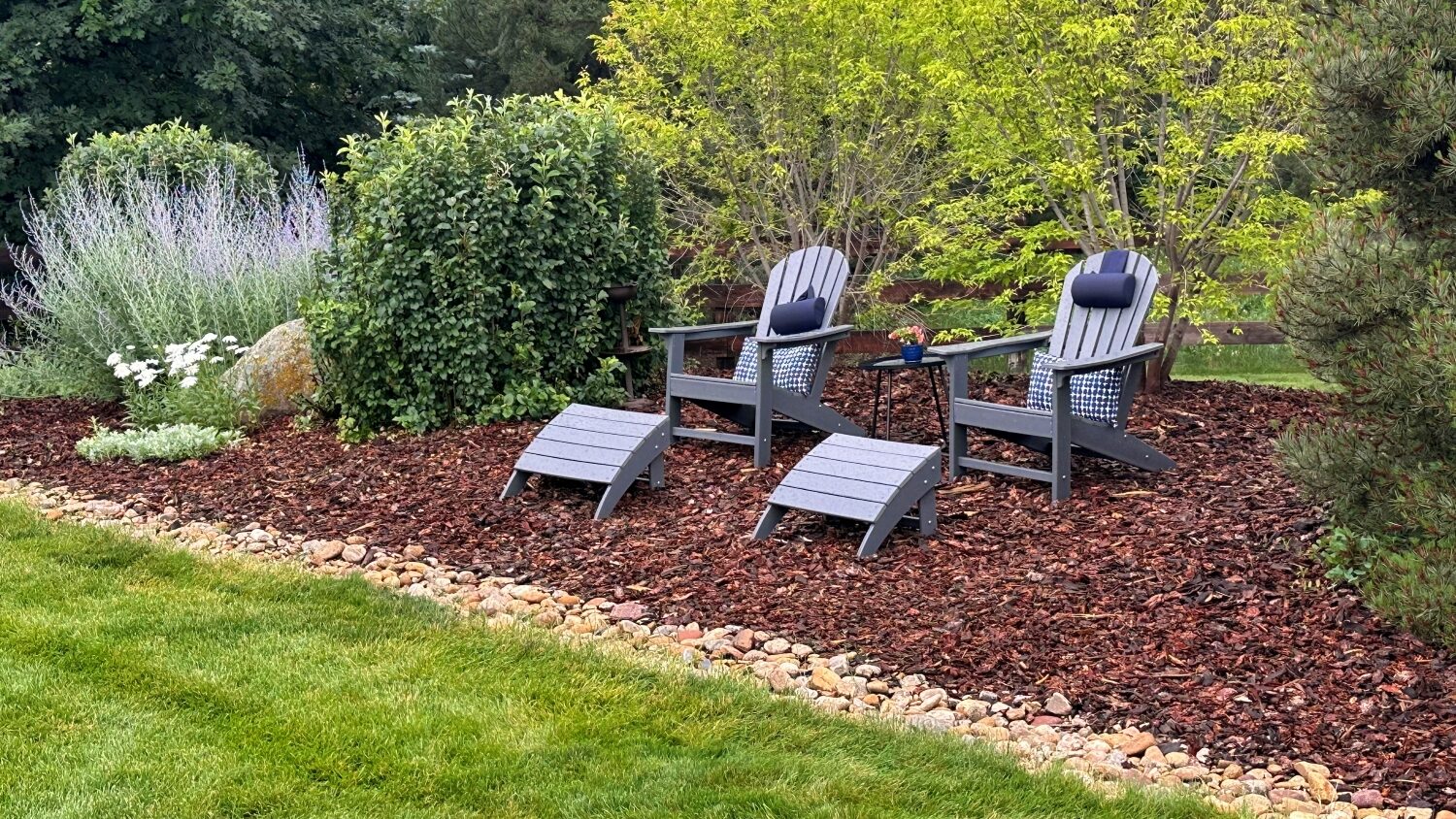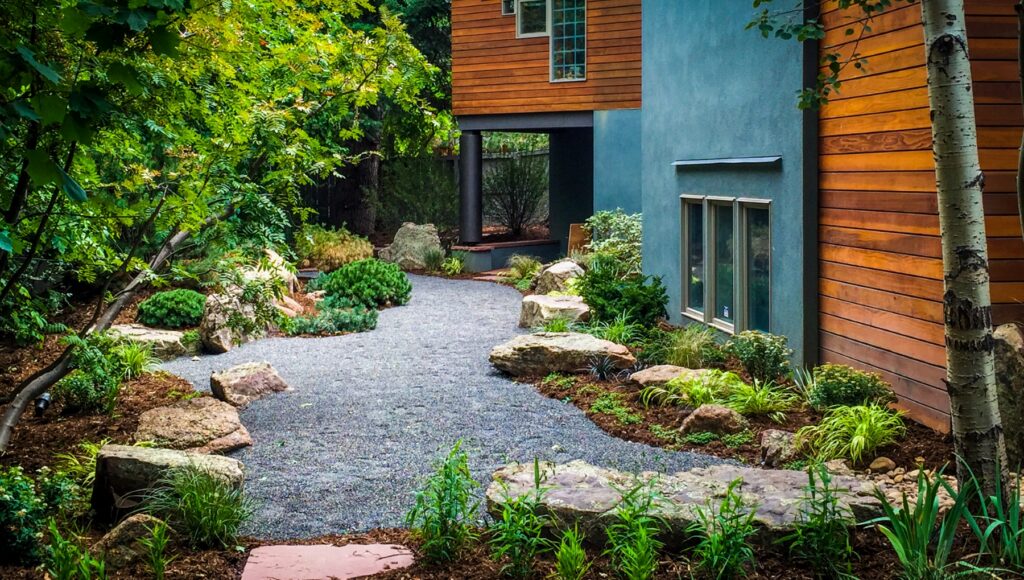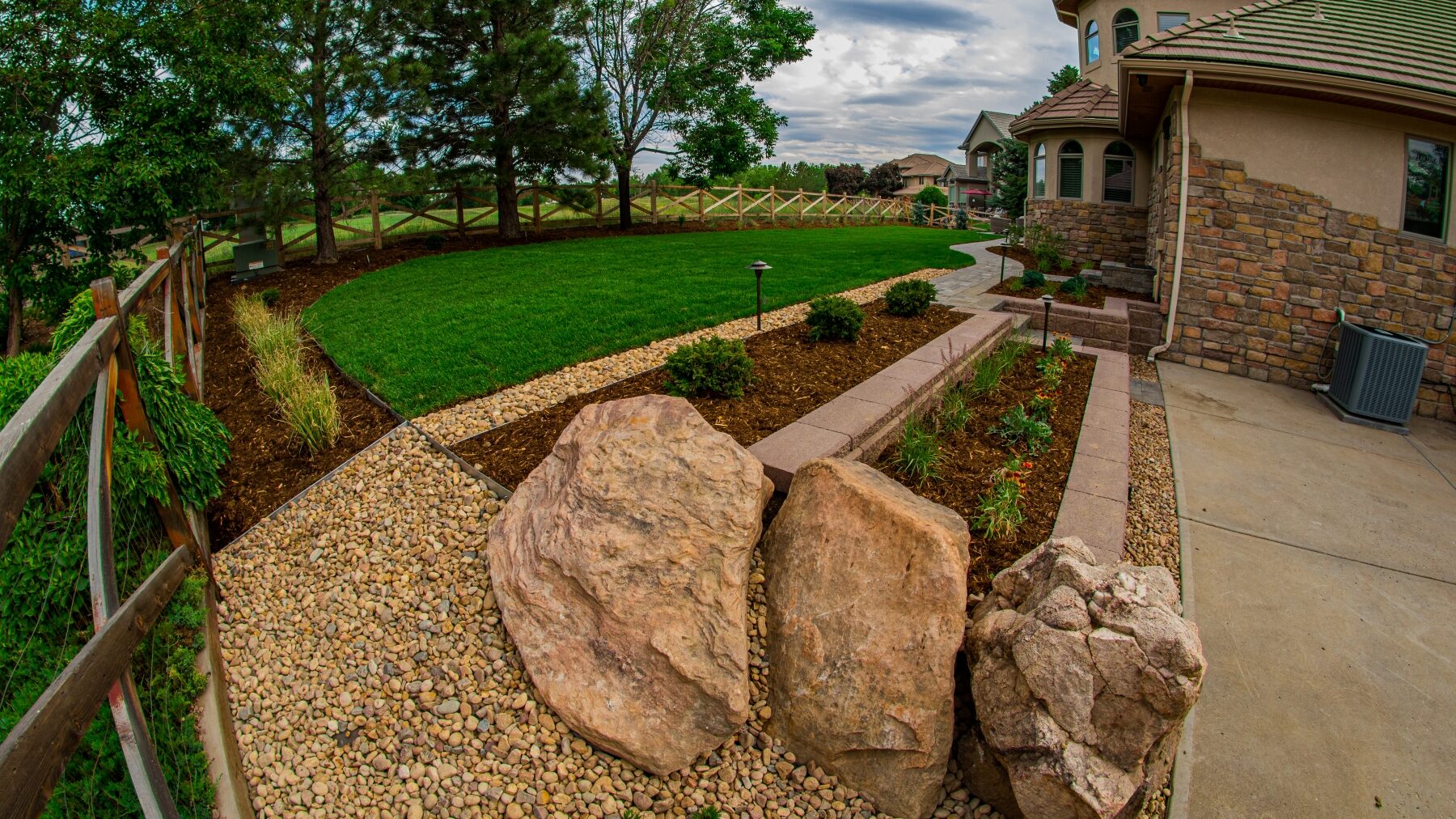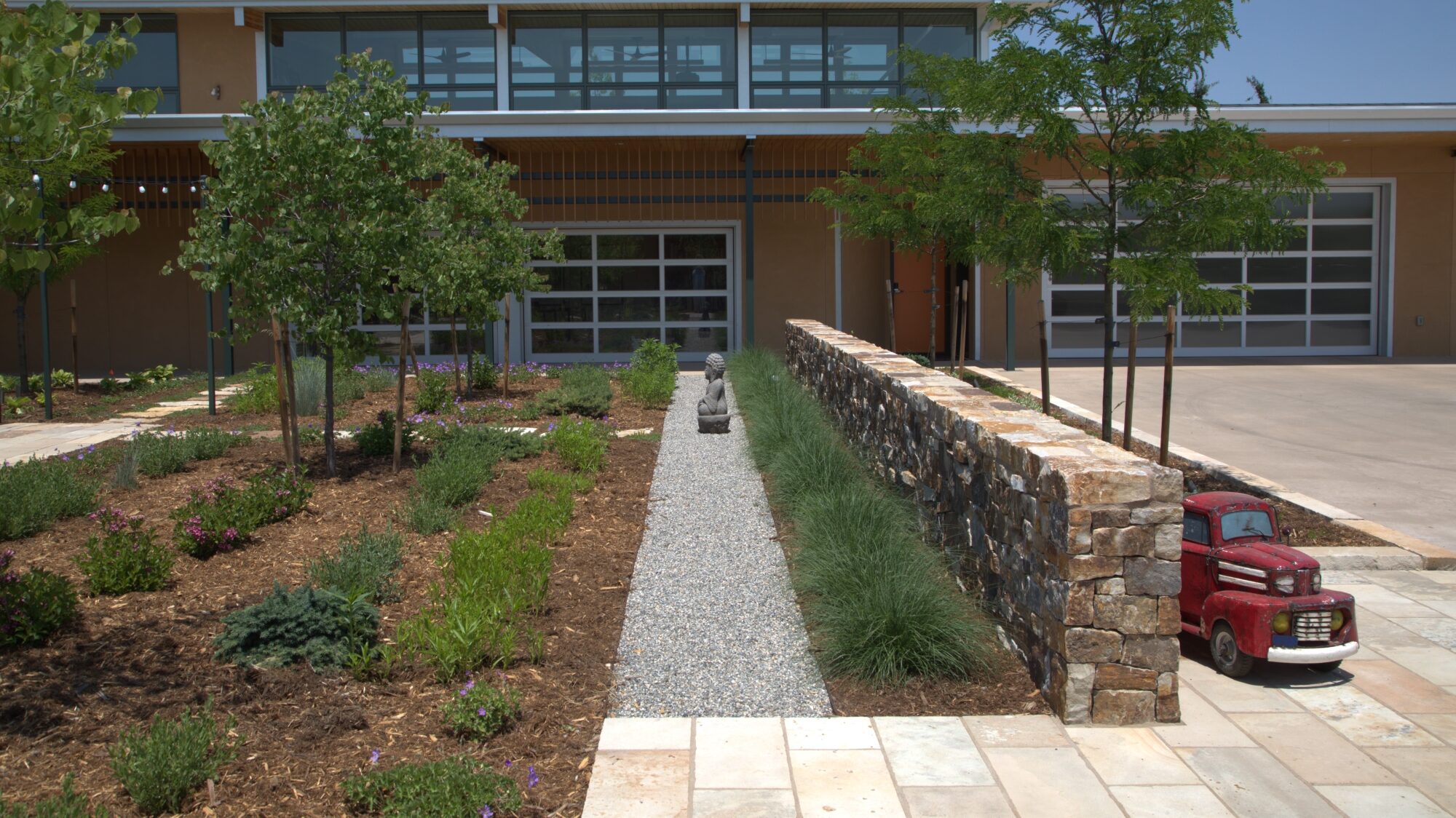September 2024 | Native Edge Landscapes
When it comes to maintaining a healthy and vibrant landscape in Colorado, one of the most effective yet often overlooked elements is mulch. Whether you’re a seasoned gardener or a novice homeowner, understanding the role of mulch can significantly enhance the beauty, function and sustainability of your outdoor space. In this blog, we’ll explore the various benefits of mulch, the types suitable for Colorado’s unique climate, and tips for effective application.

What is Mulch?
Mulch is a layer of material applied to the surface of soil in gardens and landscapes. It can be organic, such as wood chips, bark, straw, or compost, or inorganic, like gravel or rubber. In Colorado, where the climate can be harsh, mulch serves several critical functions that contribute to the health of your plants and the overall ecosystem.

The 6 Ways Mulch Benefits Your Landscape
1. Moisture Retention
Colorado is known for its dry climate, which can pose challenges for maintaining healthy plants. Mulch acts as a barrier that reduces evaporation from the soil, helping to retain moisture. This is particularly beneficial during the hot summer months when water conservation is crucial. By keeping the soil moist, mulch can reduce the frequency of watering, saving both time and resources.
2. Temperature Regulation
The temperature in Colorado can fluctuate dramatically, with hot days and cool nights. Mulch helps to insulate the soil, keeping it cooler in the summer and warmer in the winter. This temperature regulation is vital for root health, as it protects plants from extreme temperature changes that can stress or damage them.
3. Weed Suppression
Weeds can quickly take over a garden, competing with your plants for nutrients and water. A thick layer of mulch can suppress weed growth by blocking sunlight and preventing weed seeds from germinating. This not only reduces the need for herbicides but also minimizes the labor involved in weeding.
4. Soil Improvement
Organic mulches break down over time, adding nutrients back into the soil as they decompose. This process enriches the soil, improving its structure and fertility. In Colorado, where soil can often be rocky and less fertile, adding organic mulch can significantly enhance soil quality and promote healthy plant growth.
5. Erosion Control
With Colorado’s varied terrain and occasional heavy rains, soil erosion can be a concern. Mulch helps to stabilize the soil, reducing runoff and preventing erosion. This is especially important on slopes and in areas prone to water runoff.
6. Aesthetic Appeal
Beyond its practical benefits, mulch can enhance the visual appeal of your landscape. Available in various colors and textures, mulch can be used to complement the design of your garden, creating a polished and cohesive look. Whether you prefer the natural appearance of wood chips or the sleek finish of gravel, the right mulch can elevate the overall aesthetic of your outdoor space.

Wood Mulch or Rock Mulch?
It’s essential to consider the pros and cons of the different kinds of mulch before choosing one over the other. In some cases, function might dictate form like in the project pictured above.
Wood Mulch: Wood mulch is popular and highly recommended for a number of reasons. It decomposes slowly and in the process improves soil health. Shredded cedar is the type we recommend most frequently due to its wind resistance, visual appeal, and lovely smell. However, mulch is more susceptible to movement from blowing winds and heavy rains, especially when it has a weed barrier below it. It’s important to keep an eye on the depth and distribution of your wood mulch throughout the seasons and to replenish accordingly.
Pro Tip: Properly spaced and established plantings will help keep wood mulch in it’s place.
Gravel and Rock: In xeriscaping, gravel and rock on applied on top of a weed barrier are often used to create a low-maintenance and/or fire-wise landscape. They provide excellent drainage and are ideal for drought-tolerant plants, making them a practical choice for Colorado’s arid climate. However, there are plenty of downsides to consider…
- Properly maintaining gravel/rock mulched beds involves the frequent use of a leaf blower to keep leaves and organic matter from settling and decomposing into the rock crevasses.
- Eventually, regardless of maintenance frequency, soils build up on top of the weed fabric and unwanted weeds become more frequent, increasing the need for more aggressive weed control. This can happen in a just a few short years depending on the location of the beds. Getting rock beds back to a “low maintenance” state then requires replacement of the weed fabric… which also means removing and cleaning/or replacing all of the rock.
- Unlike wood mulch, rock mulch absorbs and retains significantly more heat from exposure to direct sun and warm air, making areas with rock mulch noticeably warmer than areas with wood mulch.

Tips for Effective Mulch Application
To maximize the benefits of mulch in your landscape, consider the following tips:
- Combine Mulch Types: For added visual and functional benefits, consider using different types of mulch.
- Apply the Right Depth: A layer of 2-4 inches of mulch is generally recommended. Too little won’t provide adequate benefits, while too much can suffocate plants and damage trees.
- Keep Mulch Away from Plant Stems: Ensure that mulch is not piled against the stems or trunks of plants. This can lead to rot and pest issues. Maintain a small gap around the base of plants.
- Refresh Mulch Regularly: Organic mulches break down over time, so it’s essential to replenish them annually or as needed to maintain their effectiveness.
- Consider Local Conditions: Be mindful of your specific microclimate and soil conditions when choosing mulch. Some areas may require more moisture retention, while others may benefit from improved drainage.
By selecting the right type of mulch and applying it effectively, you can protect your soil, conserve moisture, suppress weeds, and enhance the beauty of your outdoor space. Whether you’re looking to create a vibrant garden or a low-maintenance xeriscape, the right mulch can make all the difference in achieving a healthy and attractive landscape.
Get In Touch
To schedule a design consultation or request services please call 303-245-9166, send an email to information@nativeedgelandscapes.com or Get In Touch through our website. One of our Customer Care Representatives will be happy to help.
